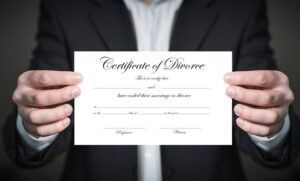
Estate Planning for Single Dads
Estate planning is essential for all parents. However, when it comes to estate planning for single dads, the stakes are even higher. Without a co-parent to step in, ensuring that guardianship, financial stability and legal protections are in place is critical. A well-structured estate plan provides peace of mind by securing an inheritance, appointing a guardian and safeguarding financial assets to protect children in the event of unexpected circumstances.
Choosing a Guardian for Minor Children
For single dads, one of the most important estate planning decisions is naming a guardian for their children. If a father passes away or becomes incapacitated without legal documentation, the court will decide who assumes parental responsibilities. This process can be lengthy, stressful and may not reflect the father’s wishes.
Selecting a guardian requires considering factors such as financial stability, parenting values and the individual’s willingness to take on the responsibility. It is also wise to name an alternate guardian in case the first choice is unable to serve. Once a guardian is chosen, the decision should be legally documented in a will to ensure clarity and prevent disputes.
Creating a Financial Safety Net
Single fathers often bear full financial responsibility for their children, making it crucial to ensure that funds are available for their long-term needs. A life insurance policy is a key tool that provides financial security in the event of an untimely death. The policy’s payout can cover living expenses, education and healthcare costs, easing the financial burden on guardians or surviving family members.
A trust can also help manage assets for children until they reach adulthood. Unlike a simple will, a trust allows the father to specify how and when funds should be distributed. This prevents young beneficiaries from receiving a large sum of money before they are mature enough to handle it responsibly. Naming a trustee ensures that assets are managed according to the father’s instructions and used solely for the benefit of the children.
Establishing Power of Attorney and Healthcare Directives
Incapacity is often overlooked in estate planning. However, single fathers must prepare for situations where they cannot make medical or financial decisions. A power of attorney (POA) designates a trusted person to handle financial affairs if the father becomes unable to do so. This prevents accounts from being frozen and ensures that bills, mortgages and other obligations continue to be paid.
A healthcare proxy, also known as an advance directive, outlines medical treatment preferences in the event of a serious illness or accident. This document ensures that medical decisions align with an individual’s personal values and wishes, thereby avoiding confusion and unnecessary disputes among family members.
Planning for a Child’s Inheritance
Inheritance planning is another critical aspect of estate planning for single fathers. If no legal documentation is in place, assets may be subject to probate, a court-supervised process that can delay inheritance and incur unnecessary costs. A will clearly specifies how assets should be distributed and who should manage the estate.
For fathers with minor children, a custodial account or trust provides additional control over how funds are used. This ensures that money is allocated toward education, housing and daily expenses rather than being mismanaged. By structuring the inheritance properly, fathers can preserve wealth for their children’s future, while minimizing legal complications.
Updating Beneficiary Designations
Many assets, such as retirement accounts, life insurance policies and investment accounts, allow account holders to designate beneficiaries. Single fathers should review these designations regularly to ensure that the correct individuals are listed. Failure to update these documents after major life events, such as a divorce, can result in assets unintentionally passing to an ex-spouse instead of children or other intended heirs.
Beneficiary designations take precedence over wills, making them one of the most important aspects of estate planning. Keeping them up to date ensures that assets pass directly to the designated recipients without going through probate. Estate planning for single dads does not have to be daunting. Work carefully with an experienced estate planning attorney to do it right. If you are interested in learning more about estate planning for single parents. please visit our previous posts.
Reference: Fidelity (July 12, 2024) “Single parents estate planning”
Image by Phillip Neho














